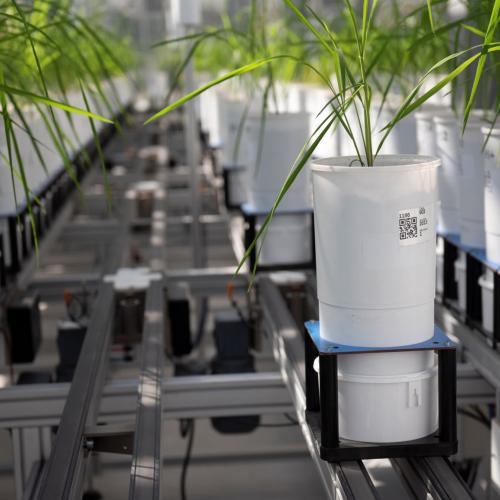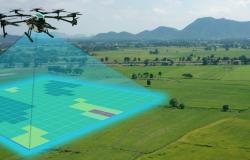Facilitating transitions by mobilizing data sciences and digital technologies

Data sciences and digital technologies have given rise to scientific, technological, and methodological advances by allowing deeper exploration of the overarching complexity and diversity of food production and environmental systems; we can now examine such systems on multiple scales, accounting for their evolutionary dynamics. In addition to its analytical, observational, and experimental approaches, INRAE has adopted in silico methods of modelling and simulation, computational statistics, and artificial intelligence to assess, design, and control systems of interest.
We are also using digital technologies for transforming these systems. This work has uncovered new research challenges and has brought different innovation frameworks to the forefront, both because of technological innovations and because of the impacts on stakeholder relationships. To this end, we are coordinating a project promoting regional innovation - Occitanum 27 - which is funded by the French Investments for the Future Programme. Bringing together 49 collaborators from the public and private sectors, the programme is using digital technologies and open innovation to facilitate the agroecological transition in the French administrative region of Occitanie.
- Complex and mutable systems
- Sensors and data acquisition systems
- Agricultural equipment for the agroecological transition
- Information technologies, networks, and new capabilities
Focus

Proxies and remote-sensing
- The pillars of digital agriculture
- Facilitating the use of images from space observations of continental surfaces: Dinamis at the service of the Theia Data and Services Centre
Highlights: Phénomique végétale | Occitanum
Facilitating transitions by mobilizing data sciences and digital technologies
Complex and mutable systems
INRAE’s scientific priorities seek to parlay diverse and heterogeneous knowledge and data various study systems, which change constantly, face constraints, display uncertainty, and affect diverse stakeholders. We must therefore develop and adapt approaches that will allow us to integrate massive quantities of information, perform data-intensive computing, use machine learning, and carry out models and simulations.
Sensors and data acquisition systems
Sensor-based data acquisition systems are becoming increasingly efficient as their size diminishes and their portability and versatility increase. They can also be used in ever more diverse ways and contexts, including as part of portable devices, as components of more permanent field set-ups, or attached to gear, drones, or satellites. This technology is booming. Such systems are helping foster research and innovation in the fields of precision agriculture, ecosystem studies, and environmental risk analysis. INRAE is developing sensor technologies and opera-ting methods as well as information systems for managing and processing the resulting data.
Agricultural equipment for the agroecological transition
Digital technologies allow real-time access to wide-ranging information at various spatial scales that reveals the condition of the environment, crops, and farm animals. This information can then be used, as needed, for instance to guide the management of agroecological interactions within farms. Agricultural equipment is employed to manage living organisms, including crops or farm animals, and varies in nature across systems (e.g., equipment differs for low-input, environmentally friendly systems). Equipment usage is a research topic to be further developed through expanded collaborations.
Information technologies, networks, and new capabilities
Information technologies have upended the way information is accessed and shared. The magnitude and speed of these processes have been magnified by the COVID-19 pandemic. New information flows are reshaping relationships among stakeholders as well as power dynamics across all food and environmental systems, both locally and globally. INRAE is using an integrated approach to examine how these technologies affect stakeholder practices and their interactions. We are also identifying methods for exploiting digital tools in responsible and relevant ways and more equitably distributing value within food systems.
More information
Metaprogramme DIGIT-BIO: Digital biology to explore and predict living organisms
